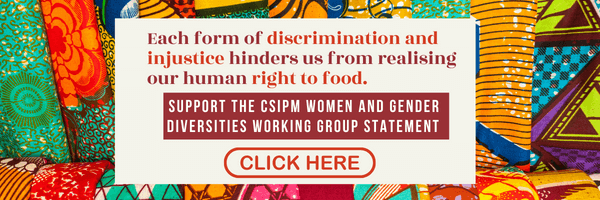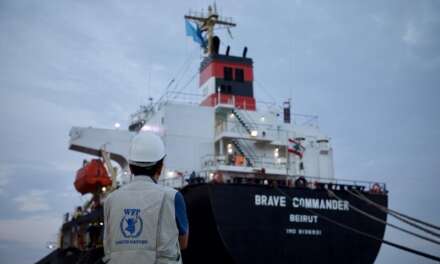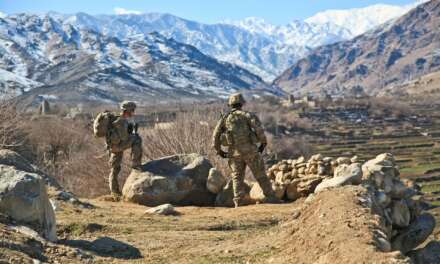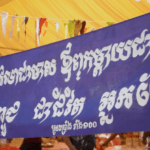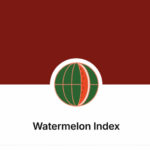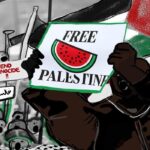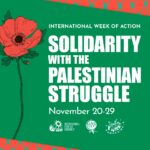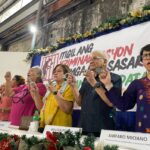Originally published here.
Sign the Statement here
“How much time do you need for our voices to reach your hearts? We do not see ourselves reflected in this document, you have taken away our voice, you have erased our voice.What a sad reality. It hurts.”
“¿CUÁNTO TIEMPO NECESITAN PARA QUE NUESTRAS VOCES LLEGUEN A SUS CORAZONES? NO NOS VEMOS REFLEJADOS EN ESTE DOCUMENTO, NOS HAN QUITADO LA VOZ, HAN BORRADO NUESTRA VOZ. QUÉ TRISTE REALIDAD. DUELE. “
As a diverse collective, which is made of persons from the South and from the North, we, peasant women, Indigenous women, women from war-torn countries, women living under occupation, non-cis heteronormative persons, fisherfolks, landless people, pastoralists, agricultural and food workers, consumers, and urban food insecure women, repeatedly show, based on our lived experiences, that women and other people who are historically subjected to discrimination due to their sexual orientation and/or gender identity suffer from multiple and intersecting forms of discrimination. Each form of discrimination and injustice hinders us from realising our human right to adequate food and nutrition (right to food), which is interdependent with all other human rights. During the entire process to develop Voluntary Guidelines on Gender Equality and Women’s and Girls’ Empowerment (GEWE) at the United Nations (UN) Committee on World Food Security (CFS) thus far, despite the difficulties we have faced in sharing personal episodes of violence, we have demonstrated how violence is still part of our everyday lives. We have shown how it intersects with other forms of oppression, preventing us from accessing natural resources, producing, and accessing food in dignity. Around the globe, we collectively struggle to expose and redress the hierarchies of socio-political power that are embedded in gender relations, and for a society and food system where all genders and sexualities have equal rights.
The CFS has previously recognised the need to achieve gender equality and the full realisation of women’s rights in the context of food security and nutrition. Already in 2017, the CFS Plenary highlighted the need to work towards the implementation and monitoring of the UN Convention on the Elimination of All Forms of Discrimination against Women (CEDAW), in particular its General Recommendation 34 (2016) on the rights of rural women. We cannot accept anything less from the CFS than a vision to develop an ambitious document. As the foremost inclusive international and intergovernmental platform, the Committee must address gender discrimination as a transversal issue that prevents more than half of the world’s population from realising their right food. Women and girls are the majority of food producers and providers for their households. They make up the majority of nurses, care and social workers, food and agricultural workers, and teachers. Non-heteronormative persons also contribute to local food production across regions. However, they still face intersecting forms of discrimination that severely impact their access to adequate and nutritious food. As human beings, the fundamental rights of women, girls, and non-heteronormative persons must be recognised.
In the current global context that is racked by conflicts and multiple crises, the rights of women, girls and people outside the cis-heteronormative social and cultural norms are undergoing a dramatic and worrying regression, thus it is particularly important to have ambitious guidelines. This regression shows that patriarchy is still embedded in our societies, and it demonstrates the vital and urgent need to achieve a pioneering document on gender equality in the context of food security and nutrition.
“War has feminised poverty and hunger. Do you think it is possible to talk about the right to food without talking about peace? Most of these women who have been left poor, who are fighting hunger, are peasant women. And here we deny them the status of peasant women”
“LA GUERRA HA FEMINIZADO LA POBREZA Y EL HAMBRE. ¿CREEN QUE ES POSIBLE HABLAR DEL DERECHO A LA ALIMENTACIÓN SIN HABLAR DE LA PAZ? LA MAYORÍA DE LAS MUJERES QUE HAN QUEDADO EN LA POBREZA, QUE LUCHAN CONTRA EL HAMBRE, SON MUJERES CAMPESINAS. Y AQUÍ LES NEGAMOS LA CONDICIÓN DE CAMPESINAS”
Since 2019, the policy convergence process to develop Voluntary Guidelines on Gender Equality and Women’s Empowerment and Girls’ has echoed the commitment of the CFS to advance gender equality towards the progressive realisation of the right to adequate food. It has also reflected the participatory and inclusive nature of the CFS. At first, the voices of the most affected were in the process of being prioritised, and this could have resulted in a strong document that recognised the diverse socioeconomic realities faced by women and non-binary gender people across diverse territories. At the mercy of building a false consensus among the Member States, however, during the last round of negotiations, many key issues that had emerged so far throughout the GEWE process were deleted from the negotiation text without any evidence-based argumentation. It is our belief that a true commitment to gender equality does not avoid divergent positions, but rather promotes discussion on the issues at hand, and considers available evidence. The CFS needs to understand and address them in full. This is the prerequisite for the Civil Society and Indigenous Peoples’ Mechanism (CSIPM) to continue the policy convergence process. We cannot accept that references to numerous crucial issues, forms of oppression, rights’ violations, and lives be made invisible, as doing so allows discriminations and violations to continue unabated. Furthermore, if the policy convergence process builds on the premise that we should only stick to agreed language, then the patriarchal status quo, which shapes the existing oppressive gender norms, will never be transformed.
“Coming from the African continent, I want to express disappointment, especially when you speak about issues around intersectionality, because where I come from, on my continent, one woman can go through so many different forms of oppression; this is the reality of millions of people.”
Instead of avoiding contentious issues, it is advisable to address and discuss them, as well as their relevance to the relation between gender equality and food security and nutrition. For this reason, we strongly propose that the CFS organises special sessions in which experts (i.e. UN officials, Special Rapporteurs, UN Independent Experts, UN WGs, academics, specialized civil society organizations, etc.) can present evidence to inform successive debates among CFS Members and participants. Given that the GEWE process did not benefit from a High-Level Panel of Experts’ (HLPE) report, these meetings were actually already planned and budgeted for, but never took place.
Two thematic fields are crucial for these special sessions:
- First, sessions on gender transformative approaches and language, including intersectionality, sexual and reproductive health rights, sexual and gender-based violence, gender diversity and gender-transformative approaches.
- Second, sessions on what the CFS understands as UN agreed language, including references to peasants and the UN Declaration on the Rights of Peasants and Other People Working in Rural Areas (UNDROP), the CFS mandate and its role vis-à-vis UN agreed language, and how this language should be included in CFS policy negotiations.
A well-informed discussion on these thematic fields will benefit the GEWE CFS policy convergence process, as well as the upcoming CFS workstreams more broadly. We hope that these meetings can foster discussion, give guidance on the thematic fields identified thus far, and help to find a way forward, based on a meaningful consensus.
“The process and the way things are being done is probably what brought us here. Unless we change the way we do things, unless we listen to those who are really the core of the document, unless we can move forward, there is no way we can change things.”
The quotes included in this statement come from CSIPM’s interventions during the 3rd round of negotiations for the CFS Voluntary Guidelines on Gender Equality and Women’s and Girls’ Empowerment. Some were translated from a language other than English and as a result some of the original meaning may have been lost in the translation (which is why the original quote appears below the translation each time).
If you want to learn more about them and our engagement in the process, you can:
- Watch our videos on the CSIPM’s YouTube channel (CSMechanism) here and here
- Join the CSIPM’s Women and Gender Diversity Working Group: if you represent an organisation that belongs to civil society or Indigenous Peoples and work on the right to food and gender equality, you can join by contacting: [email protected]
Download the statement in PDF Format and share
Join the conversation on social media using hashtags #CFSGender #WeExist #WeAreNotInvisible

![[CSIPM] Women and Gender Diversities Working Group Statement on CFS Gender Equality and Women’s and Girls’ Empowerment](https://focusweb.org/wp-content/uploads/2022/10/Schermata-2021-02-22-alle-15.29.09-1280x330.webp)
